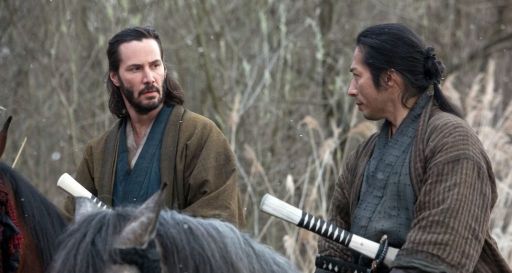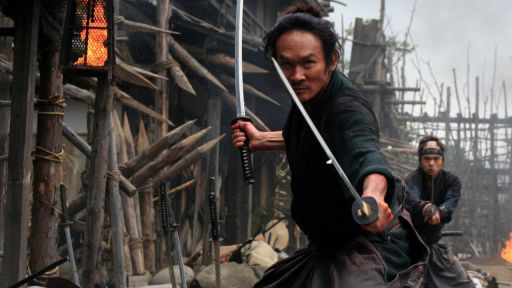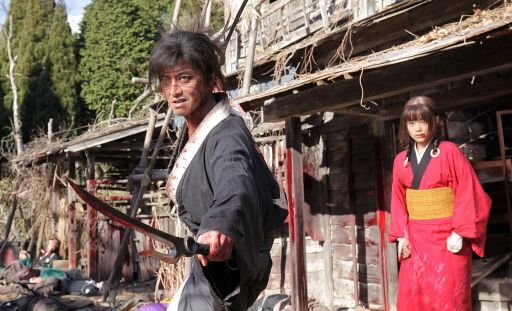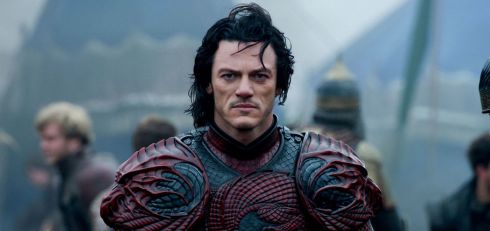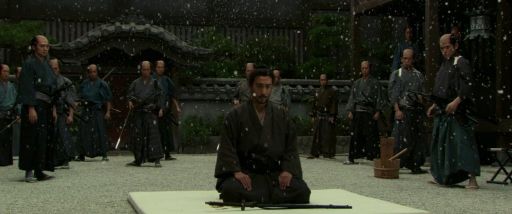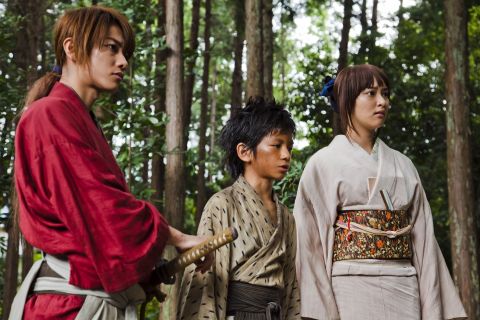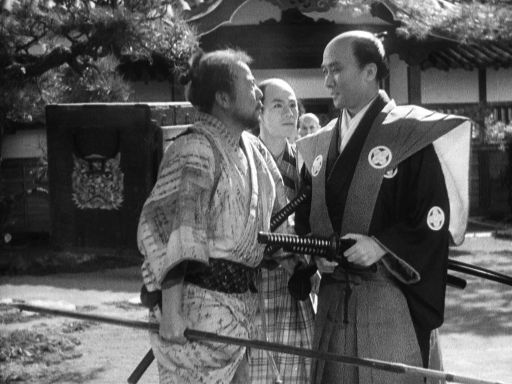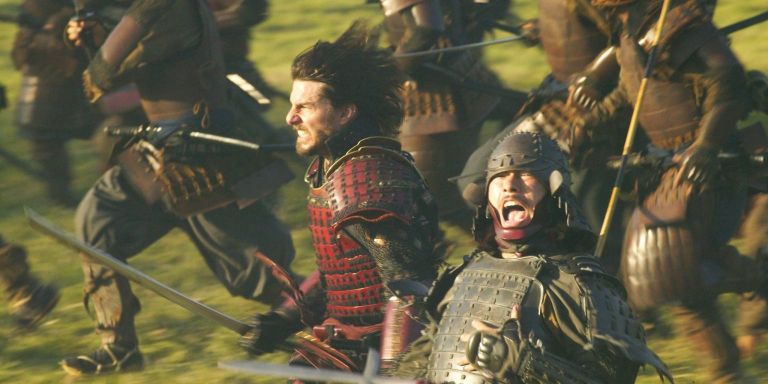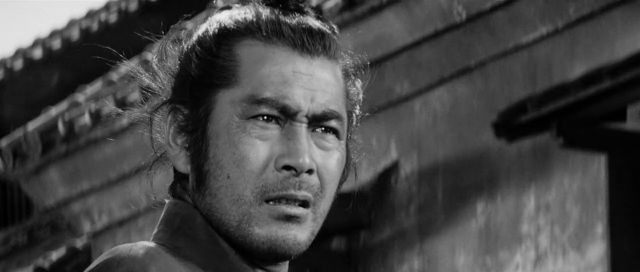The plot of “47 Ronin” is around a group of these 47 samurai who decide to exact revenge on their lord. They unite to find the perpetrators after the adored feudal lord of Ako, Lord Asano, is forced to commit suicide by treachery and his warriors are labelled as “ronin,” or masterless samurai. Oishi, a man of honour and honesty, and Lord Asano’s right-hand man, is in charge of leading them on this journey. Witchcraft and demonic creatures are obstacles that the samurai must overcome, thus their path is not without risk.
Kai, a half-Japanese, half-English man who was adopted by Lord Asano as a child following his fateful escape from the demons who nurtured him, is helping them to deal with these strange components. The 2013 movie, which was directed by Carl Rinsch, stars Keanu Reeves, Hiroyuki Sanada, Tadanobu Asano, Rinko Kikuchi, and Ko Shibasaki among a strong ensemble. A fictionalised narrative of the 47 ronin who exacted revenge on their master in Japanese history is presented in “47 Ronin.” If the movie’s premise appealed to you, we have a few suggestions we think you would like. These films like “47 Ronin” are available on Netflix, Amazon Prime, Disney+, or Hulu.
13 Assassins (2010)
With its portrayal of a gang of samurai (and one hunter) travelling across Japan on a suicide mission to exact revenge on their master, “13 Assassins” follows “47 Ronin” quite closely. The movie opens with a feudal lord committing seppuku as a form of protest against the Shogun for failing to deal with a violent and corrupt feudal lord. Shimada Shinzaemon (Koji Yakusho) commands his warriors into combat in order to seek retribution for the murder of his lord and stop a civil war in Japan. The 1963 movie “13 Assassins,” directed by Eiichi Kudo, is the inspiration for Takashi Miike’s “13 Assassins.”
Blade of the Immortal (2017)
In ’47 Ronin,’ magic plays a significant role, and Lord Asano’s demise was brought about by witchcraft. Kai uses the magic he learned from the Tengu, solitary demonic monks who saved his life when he was a toddler, to combat this. Similar to that is the protagonist of “Blade of the Immortal,” who gains immortality after being saved by a bystander via “sacred bloodworms.” The Takashi Miike-directed movie centres on the ronin Manji (Takuya Kimura), who after becoming immortal, jumps from one battle to the next.
However, when a young girl asks him to protect her as she embarks on a quest for vengeance, Manji experiences a stirring in his hopeless soul that he hasn’t had in more than fifty years. Blade of the Immortal is based on Hiroaki Samura’s self-titled manga series.
Dracula Untold (2014)
In a manner similar to “47 Ronin,” Gary Shore’s “Dracula Untold” is a fictionalised biography of Vlad III, Prince of Wallachia, popularly known as Vlad the Impaler, one of the most significant kings in Romanian history. The narrative centres on Vlad (Luke Evans), a kind ruler of Wallachia who was previously a royal ward of the Ottoman Empire and a fearsome soldier in their army. Vlad, however, decides to battle the Ottomans rather than comply with their demand when they return to Wallachia and demand 1000 boys as tribute as they knock on the country’s doors once more. The Wallachian army is insufficient to defeat the Ottomans, so Vlad turns the Prince into a monster in order to get assistance.
Hara-Kiri: Death of a Samurai (2011)
The idea of honour is among the most significant characteristics historically assigned to the samurai. The worst thing a samurai can do is lose face, whether via their actions or in battle, dishonouring both himself and their master. Many people perform ritualistic suicides called seppuku or hara-kiri as an atonement, if they are permitted to do so. Similar to how they are in “Hara-Kiri: Death of a Samurai,” seppuku and honour are entwined in “47 Ronin” and are at the centre of the narrative.
The Takashi Miike-directed Japanese-language historical drama centres on Tsukumo Hashiro, an ageing samurai who asks the local lord’s retainer to do seppuku after his clan loses its position. The servant tells Hashiro about another samurai who came to ask for the same thing a year prior but was actually trying to swindle them of three Ryo as he mulls over his request. The epic tale that follows explores the actual meaning of honour and the repercussions of deviating from Bushido.
Rurouni Kenshin (2012)
In this Keishi Otomo-directed film, Himura Kenshin (Takeru Satoh), a wandering samurai, battles a dishonest businessman who also operates a narcotics operation. The film is based on the same-named manga series by Nobuhiro Watsuki. Despite being outnumbered, Kenshin easily defeats his adversaries with superior abilities, but they keep returning, mainly because the swordsman leaves them alive because he has pledged never to murder again. However, Kenshin is willing to break his word when his companion is in grave danger.
Both Kenshin and Kai from “47 Ronin” share a similar pledge to never use their abilities to take the life of another person. But they are compelled to violate this commitment due to uncontrollable circumstances.
The 47 Ronin (1941)
The original adaptation of the narrative of the 47 ronin, “The 47 Ronin,” follows a similar plot to “47 Ronin,” but without any fantasy elements. The villainous and dishonest Lord Kira Yoshinaka (Kazutoyo Mimasu) insulted Lord Asano Naganori (Yoshizabur Arashi), who then swung at him with a sword. In the movie, Oishi Kuranosuke (Chjuro Kawarasaki) leads 46 of his men to kill him. Lord Asano is made to perform seppuku for this offence, and his samurai are given the ronin moniker. Kenji Mizoguchi’s film ‘The 47 Ronin’ is a more historically accurate depiction of the events that took place in 1703.
The Last Samurai (2003)
The Westernisation of Japan is depicted in “The Last Samurai,” which is set in 1876 and features the Emperor’s soldiers receiving weaponry. Unless they voluntarily change and join the Emperor’s army, the samurai, who are deeply steeped in their old combat practises, are quickly approaching being rendered obsolete. US Army Captain Nathan Algren (Tom Cruise) is sent to Japan to teach this new army how to wield weapons.
Rebel samurai ambush the soldiers during one of these training sessions and take Algren. Algren, however, learns the Bushido while residing with the samurai clan, which changes the way he views the warriors and their way of life. In this Edward Zwick film, Algren plays a crucial role in the plot, much like Kai in “47 Ronin,” who is an outcast because of his English lineage.
Yojimbo (1961)
The story of “Yojimbo,” a film by the renowned Akira Kurosawa, centres on a ronin named Sanjuro Kuwabatake (Toshirô Mifune), who adopts the name after moving to a new village. Two opposing but equally crooked businessmen are vying with one another for control of the town’s rife gambling. Sanjuro deftly plants the seeds for an all-out gang war while offering his services as a bodyguard to the two businessmen. Although unrelated to “47 Ronin,” the movie once more serves to remind viewers of the importance the samurai placed on honour.

